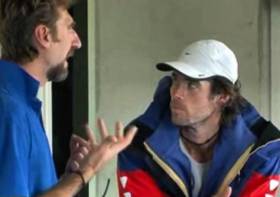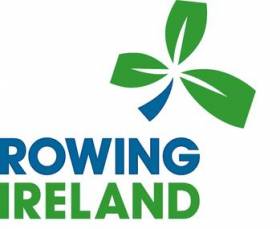Displaying items by tag: Maurogiovanni
David McGowan Chosen as New Ireland Heavyweight Coach
#Rowing: David McGowan from Australia will be the new Ireland heavyweight coach. As an athlete he competed in the Australia four which finished fourth in the Olympic Games in Athens in 2004. As a coach he had a successful run in the Netherlands. He coached the lightweight eight to gold at the World Championships in 2007, then took the men’s heavyweight eight through the Olympic Qualifiers in 2008 and they went on to the Beijing Olympic Games. He coached with Nereus, the famed student club from Amsterdam and in Sweden. Most recently, he was appointed head coach at Swan River Rowing Club in Perth in Australia.
He will take up his post next month and will be expected to create a pathway for Irish rowers from junior and university levels on to the Ireland high performance system.
In a statement from Rowing Ireland, McGowan said: “I feel privileged to have been offered this opportunity in such an exciting time for Irish rowing. I look forward to both working with Rowing Ireland and rowing in Ireland and I am excited to be joining the team shortly.”
Rowing Ireland chief executive, Hamish Adams, added: “We are delighted to have secured the services of an experienced international coach like David and I believe he will deliver real value to our heavyweight programme across the island of Ireland. Development of the heavyweight category offers a great opportunity to us as a rowing nation and we feel it is important to engage with all our stakeholders to deliver on our potential in this area.”
#Rowing: The new High Performance Director for Irish rowing will be Antonio Maurogiovanni. The Italian will take up the role in August.
Maurogiovanni rowed for Italy at the 1988 Seoul and 1992 Barcelona Olympic Games in the four and eight respectively.
As a coach he was involved in seven Olympic Games with several nations including Italy, the Netherlands, and Australia. He moves on from his role with Rowing Australia as Head Coach with the Western Australian team after 15 years. He said he was excited to take up the new challenge.
He said rowing has been his passion and made up much of his life. “It has taken me from Italy to Australia to the Netherlands and back to Australia and now to Ireland. I look forward to applying the experience and knowledge I have acquired over the years and using it to the best of my ability to bring success in Ireland.”
Hamish Adams, the chief executive of Rowing Ireland, said: “We have been through an extremely robust and intensive recruitment process to source the best possible candidate for this demanding role. As a professional coach with a background in sport science and vast Olympic experience Antonio is an exceptional candidate and we are delighted to welcome him to our team.
“I wish to thank Neville Maxwell, Chair of our High Performance Committee, Paul McDermott, Sport Ireland High Performance Director and Gianni Postiglione, World Rowing (FISA) coaching representative for their personal contributions to this recruitment process."






























































